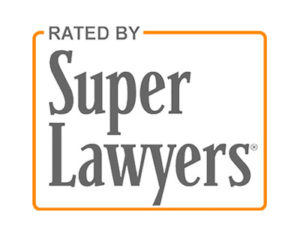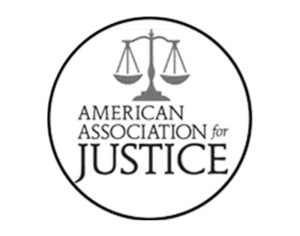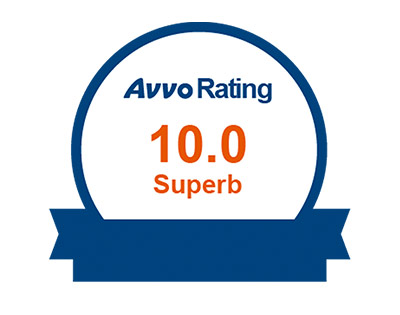Binghamton Personal Injury Lawyer

With its rural charm and beautiful scenery, Binghamton is a great place to raise a family, work, or attend college. However, it is also a place where severe injuries can happen in many ways. If you’ve been injured in an accident that was the result of someone else’s careless or reckless actions, you can obtain compensation for the expenses and impacts to your quality of life that the injury caused. The process for doing so involves filing an injury claim with the at-fault party’s insurance or pursuing a personal injury lawsuit in civil court. Your lawsuit must be filed within three years from the date of your injuries in most cases.
A Binghamton personal injury lawyer from Finkelstein & Partners can help you understand the personal injury lawsuit process and can provide guidance and assistance in your case. We are one of the largest personal injury firms in the U.S. and have spent decades fighting for the rights of the injured in New York.
Our Binghamton Law Office
Finkelstein & Partners has a law office in Binghamton located at 49 Court Street Suite 260, Binghamton, NY 13901
Drop by our office to speak with an attorney for free, or give us a call at (607) 600-9887 to set up an appointment for a no-cost case evaluation from one of our experienced Binghamton personal injury attorneys.
Review Us On Google
Finkelstein & Partners, LLP – Winning Serious Injury Lawsuits Since 1959
Why Choose Finkelstein & Partners to Handle Your Binghamton Personal Injury Claim?
Finkelstein & Partners started back in 1959, and over the years, we have grown to become one of the most prominent and successful personal injury law firms in New York. Our personal injury attorneys have more than 60 years of experience helping clients in Binghamton and throughout New York with their complex injury claims, and we have won numerous awards and honors for our outstanding professionalism and client service, including recognition from the National Trial Lawyers as being among the Top 100 Personal Injury Lawyers in our region.
We are committed to obtaining maximum compensation for our clients, and it shows in our results:
- $34 million verdict against a major pharmaceutical company
- $28.3 million settlement for a workplace injury
- $16.5 million settlement for injuries caused by a defective product
- $13.5 million settlement for a motor vehicle accident
We have also obtained many other multi-million-dollar settlements and verdicts for our clients who suffered injuries from a variety of events.
Contact us today for a free consultation about your claim. We will review your case, advise you of your options, and work diligently to hold the at-fault parties liable for your injuries so you can get the compensation you deserve.
What Types of Personal Injury Claims We Handle in Binghamton?
 Personal injury is a rather wide umbrella that encompasses many types of accidents and injuries. The attorneys at Finkelstein & Partners handle all types of Binghamton personal injury claims, including:
Personal injury is a rather wide umbrella that encompasses many types of accidents and injuries. The attorneys at Finkelstein & Partners handle all types of Binghamton personal injury claims, including:
- Binghamton Car Accidents
- Binghamton Truck Accidents
- Binghamton Motorcycle Accidents
- Binghamton Pedestrian Accidents
- Binghamton Premises Liability
- Binghamton Slip and Fall Accidents
- Binghamton Dog Bites
- Binghamton Medical Malpractice
- Binghamton Nursing Home Negligence
- Binghamton Social Security Disability Insurance
- Binghamton Construction Accidents
- Binghamton Workers’ Compensation
- Binghamton Product Liability
- Binghamton Wrongful Death
More Information About the Types of Binghamton Personal Injury Claims We Handle
- Motor vehicle accidents: Motor vehicle accidents are the leading cause of death and injury in New York and one of the main causes of some of the most catastrophic injuries an individual can suffer, including traumatic brain injuries and spinal cord injuries. We represent clients who have been injured in all types of motor vehicle accidents, including those that involve passenger car accidents, commercial trucks, motorcycles, buses, trains, rideshares, taxis, pedestrians, bicyclists, aircraft, or watercraft.
- Nursing home negligence: The federal nursing home reform law provides rights to nursing home residents, including the right to basic needs such as food, water, and heat, as well as the rights to medical care, the right to be involved in one’s care and to make one’s own decisions, and the right to be treated with respect and dignity. Unfortunately, many residents incur abuse or neglect in a nursing home setting that can cause injury and create expenses and psychological impacts. If your loved one was injured in a Binghamton nursing home due to abuse, neglect, or other types of negligence, you can hold the staff that provided negligent care and the facility liable.
- Slip and fall/ premises liability: Slip and fall accidents are a type of premises liability case resulting from an individual slipping or tripping on debris, clutter, loose or worn flooring, and falling. This is the most common type of premises liability, with other types including swimming pool accidents, elevator or escalator accidents, fires, flooding, or negligent security. Premises liability holds the owner of a commercial or private property or the agency managing a public property financially responsible if they fail to mitigate property hazards that can cause injuries to guests and to warn guests of existing hazards.
- Defective products: Recently, Finkelstein & Partners secured a $34 million judgment in favor of a client who had to undergo a mastectomy after a defective drug caused her to have breast cancer. Product liability places the responsibility for ensuring that products such as drugs, food, auto parts, appliances, and children’s toys are safe for consumers when used according to labeled instructions. These cases are often large and complex, involving many claimants who suffered injury from the defect.
- Medical malpractice: Medical malpractice refers to medical negligence that violates the standard of care provided by reasonable doctors in similar circumstances. Medical malpractice includes failure to diagnose or misdiagnosis, misreading or ignoring lab results, surgical errors such as unnecessary surgery or performing surgery on the wrong site or the wrong patient, improper medication or dosage, birth injuries, failing to provide adequate aftercare or premature discharge, failing to provide discharge instructions, not taking a complete patient history or disregarding information provided in that patient history, failing to order necessary testing, or failing to recognize symptoms.
- Work-related accidents: Most injuries arising from accidents in the workplace are compensated through the New York State Workers’ Compensation Program. Workers’ compensation is an insurance policy that most employers in the state must provide for their employees. It provides medical treatment and wage loss benefits regardless of who was at fault for the accident. In limited circumstances, an injured worker can seek compensation through a personal injury lawsuit. These cases involve either a failure on the employer’s part to provide workers’ comp coverage as required by law or the at-fault party in the accident was a third party (not your employer or your coworker). Cases involving railroad workers and other federal employees are often compensated through the Federal Employers Liability Act.
- Child Injury Accidents: We have helped families of children recover compensation after accidents at playgrounds to defective children’s toys and products.
- Federal benefits: Finkelstein & Partners is happy to assist Binghamton clients with applying for or appealing a decision for federal benefits such as the 9/11 Victim Compensation Fund, Social Security Disability Insurance, or Veterans Administration Disability.
- Traumatic brain injuries: Traumatic brain injuries are one of the most difficult types of injuries to deal with as they often result in permanent deficits. While the brain is a vital organ that is responsible for controlling the function of the rest of the body, it only has a limited ability to heal after injury. Deficits depend on the severity and location of the injury. Some common deficits caused by brain injuries include memory loss, loss of the ability to control one’s behavior or emotions, inability to move in a balanced or coordinated manner, and difficulty speaking or understanding spoken language.
- Dog bites: Some states hold that a dog owner is liable if his or her dog bites someone and causes an injury regardless of whether he or she had any previous knowledge that the animal was capable of being vicious. This is known as strict liability. Other states, however, hold that the owner is only liable if he or she had this knowledge that the dog was capable of biting. This is known as the “one bite rule.” New York’s dog bite laws are a hybrid of these two standards, with owners being strictly liable for medical expenses only if their dog bites someone. To obtain damages for other expenses or impacts requires the claimant to prove that the dog owner was negligent.
- Wrongful death: Death is the absolute worst outcome in any type of accident and often results in extraordinary financial and psychological impacts for the family members of the deceased. If you have lost a loved one as the result of someone else’s carelessness or recklessness, you can seek compensation through a wrongful death lawsuit. Like a personal injury claim, a wrongful death lawsuit is a legal claim filed in civil court. Wrongful death lawsuits must be filed within two years after the date of death. The case is filed by a personal representative of the deceased’s estate on behalf of beneficiaries. Some of the expenses and impacts that are compensated through wrongful death claims include the costs of treating the deceased’s final injury, the expenses of a funeral service and burial or cremation, loss of wages and benefits that the deceased was reasonably expected to earn through the course of his or her career if he or she had survived, the value of support and services that the deceased provided to his or her family members, the value of parental nurturing, care, and guidance provided by the deceased to his or her surviving children, conscious pain and suffering that the deceased endured between the time of his or her final injury and the time of death, and 9 percent interest on the damage award that is calculated from the date of death.
Binghamton Accident Statistics
 Among the three leading causes of death related to unintentional injury in New York are motor vehicle accidents, falls, and poisoning. More than 1.3 million people suffer unintentional injuries in this state each year, with many requiring emergency department visits or hospitalization. In Binghamton, one of the leading causes of injuries and death is motor vehicle accidents. Binghamton serves as Broome County’s seat and is a major municipality in the county. According to the Institute for Traffic Safety Research & Management (ITSRM), Broome County and the Binghamton area reported the following accident statistics for the most recent year of reporting:
Among the three leading causes of death related to unintentional injury in New York are motor vehicle accidents, falls, and poisoning. More than 1.3 million people suffer unintentional injuries in this state each year, with many requiring emergency department visits or hospitalization. In Binghamton, one of the leading causes of injuries and death is motor vehicle accidents. Binghamton serves as Broome County’s seat and is a major municipality in the county. According to the Institute for Traffic Safety Research & Management (ITSRM), Broome County and the Binghamton area reported the following accident statistics for the most recent year of reporting:
- 4,811 total traffic-related crashes, resulting in 753 injuries and 20 fatalities
- 68 pedestrian accidents involving motor vehicles that resulted in 63 injuries and 3 deaths
- 35 total bicycle crashes that injured 28 and killed 1
- 67 total motorcycle accidents that injured 46 and killed 5
Source: itsmr.org
Binghampton Personal Injury FAQs
What Types of Personal Injuries Do People Suffer in Binghamton Accidents?
 People suffer a broad range of injuries, depending on the nature of the accident and other factors. Some injuries are minor, while others are severe and life-threatening. Some of the common injuries we help people recover compensation for in Binghamton include:
People suffer a broad range of injuries, depending on the nature of the accident and other factors. Some injuries are minor, while others are severe and life-threatening. Some of the common injuries we help people recover compensation for in Binghamton include:
- Fractures and broken bones
- Deep cuts and lacerations
- Soft-tissue injuries, such as sprains and strains of muscles, tendons, and ligaments
- Burn injuries
- Head injuries, including traumatic brain injuries
- Spinal cord injuries
- Whiplash and other neck injuries
- Internal organ damage and internal bleeding
- Amputations and crush injuries
- Electrocution injuries
- Severe nerve damage
- Serious eye, ear, and facial injuries, including dental injuries
Along with physical injuries, many accident victims suffer considerable emotional and psychological harm from the trauma of the accident and its aftermath. This can lead to conditions such as anxiety and depression, emotional distress and mental anguish, and Post-Traumatic Stress Disorder (PTSD).
If you or someone you love has suffered any of these injuries due to the negligence or intentional actions of another party, it’s important to consult with a qualified personal injury attorney to understand your rights and options for compensation.
What Should I Do After an Accident in Binghamton?
 If you’ve been involved in an accident in Binghamton, there are several important steps you should take to ensure your safety, gather information, and protect your rights. Here’s what you should do after an accident:
If you’ve been involved in an accident in Binghamton, there are several important steps you should take to ensure your safety, gather information, and protect your rights. Here’s what you should do after an accident:
- Check for Injuries and Ensure Safety: First, check yourself and others involved for injuries. Call 911 immediately if there are serious injuries and need medical assistance. If it’s safe to do so, move to a safe location to avoid further danger from traffic or other hazards.
- Contact Authorities and Report the Accident: If the accident involves a motor vehicle, call the police to report the accident. They will create an official accident report, which can be valuable for insurance claims and legal purposes. If it’s a slip and fall accident, notify the property owner or store manager. If the accident happened at work, report the incident to your employer.
- Exchange Information: Where applicable, exchange contact information, insurance details, and vehicle information with all parties involved in the accident. Get names, phone numbers, addresses, license plate numbers, and insurance policy numbers.
- Gather Evidence: Take photos of the accident scene, vehicle damage, road conditions, traffic signs, and any visible injuries. – If there are witnesses, collect their contact information. Their statements might be important later.
- Don’t Admit Fault: Avoid admitting fault or making statements that could be interpreted as an admission of fault. Stick to the facts when talking to others. Be careful when giving statements to insurance adjusters, especially the other party’s insurer. It’s often wise to consult an attorney before providing recorded statements.
- Seek Medical Attention: Even if you feel fine, it’s wise to seek medical attention. Some injuries might not be immediately apparent, and a medical evaluation can help identify any hidden injuries.
- Notify Your Insurance Company: Report the accident to your insurance company as soon as possible. Provide accurate and factual information about the incident.
- Preserve Evidence: Keep records of medical bills, receipts for vehicle repairs, and any other documents related to the accident. These records will be important for your claim.
- Follow Medical Recommendations: If you received medical treatment, follow your doctor’s recommendations and attend any necessary follow-up appointments.
- Understand Time Limits: Be aware of New York’s statute of limitations for personal injury claims. Filing within the required time frame is essential.
- Consult an Attorney: If you suffered injuries or significant damages, consult a personal injury attorney in your area. They can guide you through the legal process and ensure your rights are protected.
Taking these steps can help ensure your safety, document important information, and lay the groundwork for any potential insurance claims or legal actions. If you’re unsure about how to proceed after an accident, consider consulting a personal injury attorney who can provide guidance tailored to your specific situation.
How Do We Prove Liability in a Personal Injury Case?
 The ability to prove liability, also known as legal responsibility, is one of the cornerstones of your case.
The ability to prove liability, also known as legal responsibility, is one of the cornerstones of your case.
Your lawyer can prove liability by establishing:
- The at-fault party owed you a duty of care. The duty of care refers to the way a reasonable person would have responded in similar circumstances. For example, the duty of care that one driver owes to other users of the roadways in Binghamton would be to operate his or her motor vehicle safely and legally.
- There was a breach in the duty of care. The breach is the actions that the at-fault party took that were contrary to the duty of care that was owed. Using the car accident example, some common breaches in the duty of care that a driver owes to others include impaired driving, drowsy driving, speeding, or failure to yield the right-of-way.
- The breach caused the accident which resulted in the claimant’s injuries and subsequent financial and psychological impacts.
What Damages Can I Recover in a Binghamton Personal Injury Lawsuit?
 Damage means a payment to compensate for harm. New York allows the recovery of both economic and non-economic damages.
Damage means a payment to compensate for harm. New York allows the recovery of both economic and non-economic damages.
Economic damages refer to compensation for the out-of-pocket expenses you have incurred because of your accident, such as:
- Medical expenses, including the cost of emergency treatment at the scene or in the emergency department, transport to the hospital, diagnostic testing, hospitalization, physician and surgical services, prescription medication, physical therapy and rehabilitation, and the provision of assistive devices such as crutches or a wheelchair.
- Lost wages if you are too injured to work or must miss work to attend an injury-related medical appointment.
- Loss of future earning capacity if your injury results in a disability and you can no longer work or earn as much as you did before the accident.
- Property damage, such as the cost of repairing or replacing the vehicle you were driving in a motor vehicle accident.
Non-economic damages refer to compensation that you obtain for the impacts your injury has had on your quality of life. Often, serious injuries prevent an individual from working, living independently, or participating in activities he or she previously enjoyed. Instead, they’re dealing with the pain of the injury and the treatments required to recover from it. This compensation is often referred to as pain and suffering damages, as compensates the injured person for physical and emotional injuries.
How Long Do I Have to File a Personal Injury Lawsuit in Binghamton?
 In Binghamton as well as the entire state of New York, there is a specific time limit, known as the statute of limitations, within which you must file a personal injury lawsuit. The statute of limitations varies depending on the type of accident or injury you’re dealing with. Here are some general guidelines:
In Binghamton as well as the entire state of New York, there is a specific time limit, known as the statute of limitations, within which you must file a personal injury lawsuit. The statute of limitations varies depending on the type of accident or injury you’re dealing with. Here are some general guidelines:
- Personal Injury: For most personal injury cases, including car accidents, slip and fall accidents, and other types of negligence claims, the statute of limitations is typically three years from the date of the accident or injury. This means you have three years to file a lawsuit.
- Medical Malpractice: If your injury resulted from medical malpractice, the statute of limitations is generally two years and six months from the date of the alleged malpractice. However, there are certain exceptions and conditions that can affect this timeframe.
- Wrongful Death: If you’re filing a wrongful death claim on behalf of a deceased person, the statute of limitations is usually two years from the date of the person’s death.
It’s important to note that these timeframes are subject to change based on specific circumstances, and there may be exceptions or factors that could affect the statute of limitations for your particular case. If you fail to file a lawsuit within the applicable statute of limitations, you may lose your right to seek compensation through the legal system.
To ensure that you comply with the appropriate statute of limitations for your case, it’s highly recommended that you consult with a personal injury attorney in Binghamton. An attorney can provide you with accurate information about the specific time limits that apply to your situation and guide you through the legal process. If you’re considering filing a personal injury lawsuit, it’s in your best interest to do so as soon as possible to protect your rights and preserve your ability to seek compensation.
What if I Can’t Afford an Attorney?
 Many individuals are tempted to represent themselves in their personal injury claims over fear that they can’t afford the services of an attorney. Unfortunately, this often leads to confusion and difficulty, as the legal process of obtaining compensation for your injuries is a complex one that very much requires legal education and training that those who aren’t attorneys cannot be expected to know.
Many individuals are tempted to represent themselves in their personal injury claims over fear that they can’t afford the services of an attorney. Unfortunately, this often leads to confusion and difficulty, as the legal process of obtaining compensation for your injuries is a complex one that very much requires legal education and training that those who aren’t attorneys cannot be expected to know.
The Binghamton personal injury lawyers from Finkelstein & Partners are pleased to provide two services aimed at ensuring that anyone in Binghamton who needs our services can access them without an upfront financial investment.
Those services include:
- A free case evaluation. This no-obligation evaluation is time with an attorney where you can obtain answers to your legal questions and learn more about the firm and the legal options that are available for you.
- A contingency fee payment arrangement. This means that you owe nothing in attorney fees for your lawyer’s services until there has been a successful outcome in your case.
How Long Will It Take to Resolve My Binghamton Personal Injury Case?
 The time it takes to resolve a personal injury case in Binghamton can vary widely depending on several factors. While some cases might be resolved relatively quickly, others can take a significant amount of time. Here are some factors that can influence the timeline of your personal injury case:
The time it takes to resolve a personal injury case in Binghamton can vary widely depending on several factors. While some cases might be resolved relatively quickly, others can take a significant amount of time. Here are some factors that can influence the timeline of your personal injury case:
- Severity of Injuries: Cases involving more severe injuries often take longer to resolve due to the need for extensive medical treatment and recovery time.
- Type of Case: The complexity of the case matters. Some cases, like straightforward car accidents, might settle more quickly, while cases involving medical malpractice or complex liability issues could take longer.
- Investigation and Evidence Gathering: The time it takes to gather evidence, interview witnesses, and assess the details of the incident can impact the overall timeline.
- Negotiations with Insurance Companies: Negotiating a fair settlement with insurance companies can take time, especially if liability or the extent of damages is disputed.
- Medical Treatment and Recovery: Your medical treatment and recovery timeline can affect the overall case duration. Waiting until you’ve reached maximum medical improvement ensures all medical costs are accounted for.
- Legal Process: Filing a lawsuit, if necessary, involves legal procedures that can add time to your case. The litigation process, including discovery, motions, and court dates, can vary in length.
- Court Backlog: The caseload of the court system can impact how long it takes to get a court date or reach a resolution.
- Negotiation vs. Trial: If your case goes to trial, the trial process can significantly extend the time it takes to resolve the case compared to settling through negotiation.
- Defendant’s Cooperation: If the responsible party or their insurance company is uncooperative, it could lead to delays.
- Legal Strategy: Your attorney’s strategy and approach to handling your case can also impact the timeline. Some cases might benefit from quick settlement, while others might require more time for building a strong case.
- Settlement Offers: If initial settlement offers are inadequate, it might take additional time to negotiate a fair resolution.
Given the range of factors that can affect the timeline, it’s difficult to provide a specific estimate. It’s important to work closely with a qualified personal injury attorney in Binghamton who can assess the details of your case, provide you with a better understanding of the expected timeline, and guide you through the legal process. Keep in mind that while you might want a swift resolution, it’s equally important to ensure that your rights are protected and that you receive fair compensation for your injuries and damages.
What If I'm Partially At Fault for the Binghamton Accident? Can I Still Recover Damages?
 Yes, you may still be able to recover damages in a Binghamton personal injury case even if you were partially at fault for the accident. New York follows a comparative negligence rule, specifically the “pure comparative negligence” doctrine. This means that your ability to recover damages is not completely barred if you were partially responsible for the accident. However, your compensation will be reduced based on the degree of your own fault.
Yes, you may still be able to recover damages in a Binghamton personal injury case even if you were partially at fault for the accident. New York follows a comparative negligence rule, specifically the “pure comparative negligence” doctrine. This means that your ability to recover damages is not completely barred if you were partially responsible for the accident. However, your compensation will be reduced based on the degree of your own fault.
For example, if you were involved in an accident in Binghamton and it was determined that you were 20% at fault for the accident, your total compensation would be reduced by 20%. If your total damages were assessed at $50,000, you would receive $40,000 (80% of the total) in compensation.
It’s important to note that under this rule, your level of fault does not prevent you from seeking compensation, but it does affect the amount you’re eligible to receive. Insurance companies might try to shift more blame onto you to reduce their own liability, so it’s advisable to consult with a personal injury attorney to ensure your level of fault is accurately determined.
If you’ve been involved in an accident in Binghamton and believe you share some degree of fault, it’s recommended to consult with an experienced personal injury attorney. They can assess the details of your case, determine the proportion of fault, and help you navigate the legal process to ensure you receive fair compensation while protecting your rights.
What's the Personal Injury Claims Process in Binghamton?
 The personal injury claims process in Binghamton involves several stages, each designed to help you seek compensation for your injuries and damages. Here’s an overview of the typical personal injury claims process:
The personal injury claims process in Binghamton involves several stages, each designed to help you seek compensation for your injuries and damages. Here’s an overview of the typical personal injury claims process:
- Seek Medical Attention: Your health and safety are the top priority. Seek medical attention immediately after the accident, even if your injuries seem minor. Prompt medical care not only ensures your well-being but also creates a record of your injuries.
- Consult with an Attorney: Consider hiring a personal injury attorney who is familiar with Binghamton’s laws and regulations. An attorney can provide legal advice, guide you through the process, and protect your rights.
- Investigation: Your attorney will begin investigating the accident, collecting evidence, speaking to witnesses, and assessing the extent of your damages. This evidence will be crucial in building a strong case.
- Negotiation: The insurance company may respond with a settlement offer that is too low to cover all the costs of your injuries and losses. Your attorney will negotiate on your behalf to ensure a fair settlement fully compensates you for all you have endured.
- Filing a Lawsuit (if necessary): If negotiations do not lead to a satisfactory settlement, your attorney may file a lawsuit on your behalf. This initiates the formal legal process.
- Discovery: During the litigation process, both parties exchange information and evidence through a process called discovery. This includes depositions, document requests, and other forms of evidence exchange.
- Mediation or Settlement Conference: Prior to trial, the parties might participate in mediation or a settlement conference. A neutral third party helps facilitate negotiations to reach a resolution.
- Trial (if necessary): If a settlement cannot be reached, the case proceeds to trial. Both sides present their evidence and arguments, and a judge or jury determines the outcome.
- Verdict and Judgment: If the case goes to trial, the court will issue a verdict. If you win, the court will determine the amount of damages you are entitled to.
- Appeals (if applicable): If either party is dissatisfied with the verdict, they may choose to appeal the decision to a higher court. However, appellate courts usually only approve appeals if the party can show that judicial misconduct or procedural errors affected the outcome. You typically can’t appeal just because you lost a case.
- Collecting Compensation: If you are awarded damages through a settlement or trial, your attorney will work to ensure that you receive the compensation you are entitled to.
Throughout this process, your attorney will handle legal complexities, negotiate on your behalf, and advocate for your best interests. Keep in mind that every case is unique, and the timeline and details can vary based on the specifics of your situation. If you’re pursuing a personal injury claim in Binghamton, working closely with an experienced personal injury attorney can greatly improve your chances of achieving a favorable outcome.
Contact Our Binghamton Personal Injury Lawyers for Help
 If you’ve been injured in any sort of accident that was caused by someone else’s careless or reckless actions, let our experienced Binghamton personal injury lawyers help you understand your legal options. In the past 60+ years, we have helped thousands of clients obtain the compensation they need to assist with their physical and psychological recovery. Contact Finkelstein & Partners online or call us at (607) 763-1793 for your free case evaluation today.
If you’ve been injured in any sort of accident that was caused by someone else’s careless or reckless actions, let our experienced Binghamton personal injury lawyers help you understand your legal options. In the past 60+ years, we have helped thousands of clients obtain the compensation they need to assist with their physical and psychological recovery. Contact Finkelstein & Partners online or call us at (607) 763-1793 for your free case evaluation today.
Client Reviews
“Thank you for helping me in my vulnerable state. I was in no shape to fight with insurance companies and am very grateful to you.” – Shannon D.
“I am extremely grateful for the recent services of the team at Finkelstein and Partners in representing me in my recent personal injury lawsuit, including David Gross, Sharon Scanlan, Lois Daunt, and Lisa Parkinson. In particular, Sharon was an amazing advocate and she was instrumental in securing a favorable outcome without going to trial. Although this started with a negative trauma and injury, it was resolved with a very positive outcome due to the team at Finkelstein and Partners. They provided a high degree of professionalism, communication, and compassion, and I could not have been happier with my experience.” – Jaclyn
Read more client testimonials here.
Resources
Binghamton Emergency Rooms
If you or a loved one suffered serious injuries in Binghamton because of someone else’s negligence, you can visit any of the area’s emergency rooms or urgent care centers to get the medical treatment you need:
- Lourdes Emergency Department: 169 Riverside Dr, Binghamton, NY 13905
- UHS Binghamton General Hospital Emergency Room: 10-42 Mitchell Ave, Binghamton, NY 13903
*Disclaimer – Finkelstein & Partners does not endorse these healthcare providers, nor do we profit from having them listed on our website.
Binghamton Courthouses

- Broome County Court House: 92 Court St, Binghamton, NY 13901
- Federal Building and U.S. Courthouse: 15 Henry St, Binghamton, NY 13901
- Dickinson Town Court: 531 Old Front St #4, Binghamton, NY 13905

Neighborhoods We Serve in Binghampton
Downtown Binghamton (13901), North Side (13901), Downtown (13901), West Side (13790), Southside West (13903), Southside (13905), First Ward (13905), Southside East (13903)
